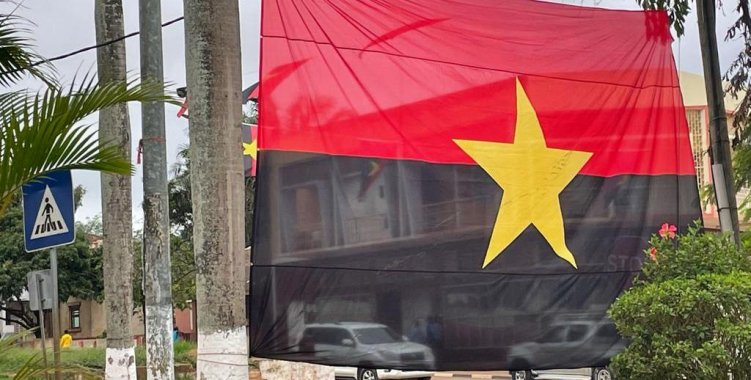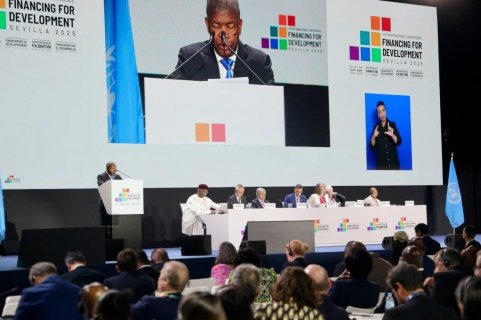Manuel Nunes Júnior, secretary of the Political Bureau of the MPLA Central Committee for Economic and Social Policy, responded in this way to Lusa, on the sidelines of a meeting with journalists, asked about the press conference convened on Monday by the ruling party, in that a leader denied the existence of talks with opponents of the National Union for the Total Independence of Angola (UNITA) about a possible governmental transition.
The also Minister of State for Economic Coordination denied that there is greater intensity in the tone of the political campaign, stating that it is important that things be clarified: "An element appeared - placed by an entity with great political responsibility - that it was important to clarify and it was Life is like that, we have to clarify things and not leave things up in the air, without any kind of objectivity and sometimes really".
On Monday, the MPLA secretary for Political and Electoral Affairs João "Jú" Martins, admitted to having been in a meeting with UNITA president Adalberto da Costa Júnior, but denied that a possible post-electoral political transition had been addressed. and considered that only a "lunatic" could think of defeating the MPLA, the party that has governed Angola since independence in 1975.
He also pointed out the supposed "subversive nature" of some actions promoted by the leader of UNITA and stressed that the "subversion was defeated on February 22, 2002", in an allusion to the death in combat of Jonas Savimbi, founder of that party, the biggest of the opposition and who for almost 30 years waged a war against government forces supported by the MPLA.
Manuel Nunes Júnior considered, however, "that dialogue must exist between parties, between competitors who are at stake and who use the weapons they have at their disposal".
In response to Martins' statements, Adalberto da Costa Júnior reiterated this Tuesday to Lusa that the issue of transition was discussed and considered that the MPLA was threatening instability because it wanted to remain in power "at any cost".
"We, the MPLA party, have presented our position on the matter and, very clearly, the other party may not agree, but that is something else", stressed Manuel Nunes Júnior, regarding the differences on the content of the conversations held between the leaders of the two largest Angolan parties.
"We want the elections in Angola to always be a celebration of democracy, which are not grounds for discord, for conflicts, some of which can be more dangerous", countered Nunes Júnior, declaring that the MPLA's pronouncement aimed to "prevent any situation of disagreement could lead to conflicts that could be very harmful to the country".
He added: "We want the elections, these and others that come from now on, to always be peaceful, to be held in a peaceful environment where everyone defines their vote on the basis of their conscience, on the basis of their values".
"We want peaceful, peaceful elections, without conflicts, without riots, without anything, we want it to be an environment in which each Angolan can express himself freely", insisted the MPLA official, reiterating that the disputes are typical of political debate.
The meeting with journalists, which took place in Luanda, served to present the main axes of the government program with which the Popular Movement for the Liberation of Angola is running for the general elections on 24 August.
Manuel Nunes Júnior stressed that the MPLA is a defender of plurality and contradiction, principles that are inscribed in the party's government program, as well as the participation of private individuals in the media and stressed that they are protected by the State.
"There was actually at a given moment the transfer of goods that were private to the public domain", but which will return to private hands again, through transparent procedures, he guaranteed.
Media Nova, owner of TV Zimbo, Rádio Mais, newspaper O País and Gráfica Damer, and Interactive, producer of TV Palanca and Rádio Global, passed to the state sphere in 2020, as they are private projects financed by public money.
The date for reprivatization can only be set after the elections.
"The MPLA program does not talk about specific cases, but says that it protects and supports the participation of the private sector in the media. That principle is there, although it does not cover these specific cases, since the party's program will be translated into a plan of national development", if he wins the general elections scheduled for August 24, 2022, concluded Nunes Júnior.







